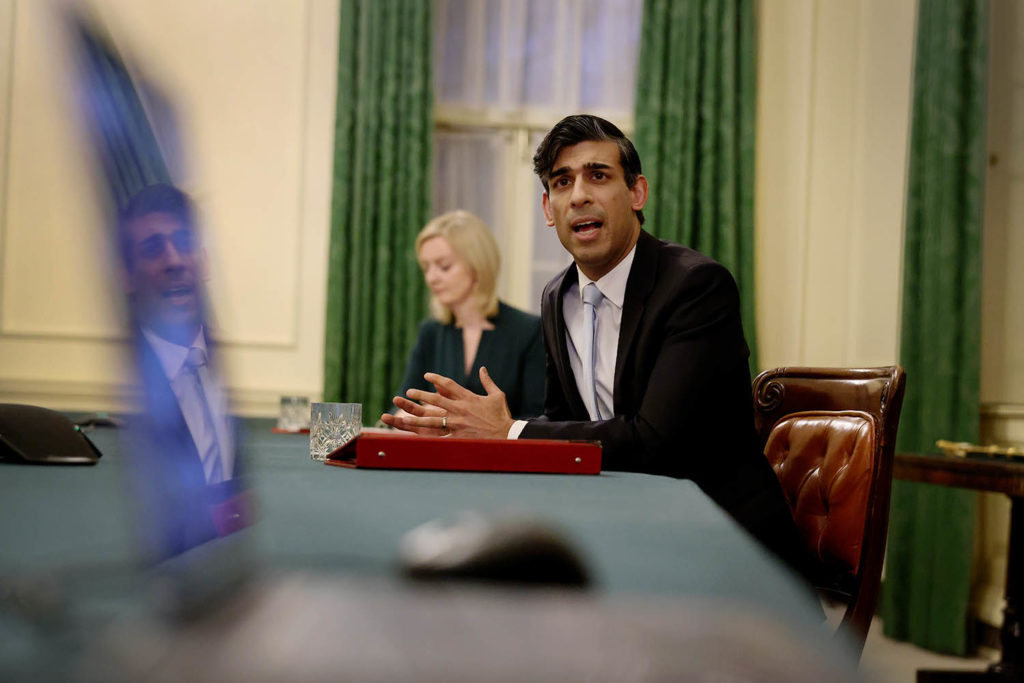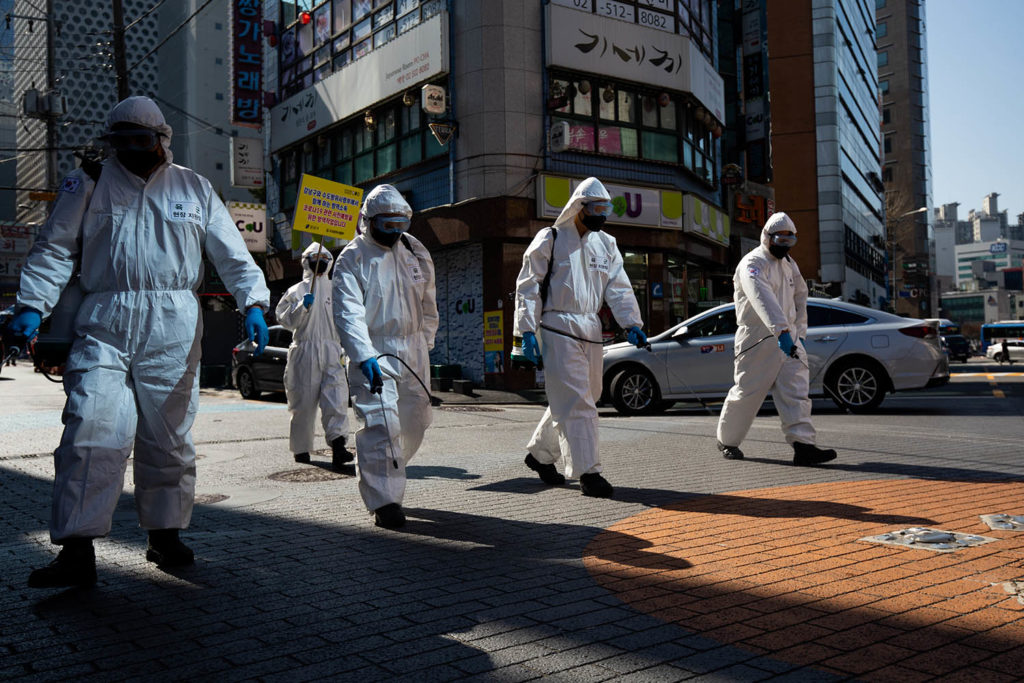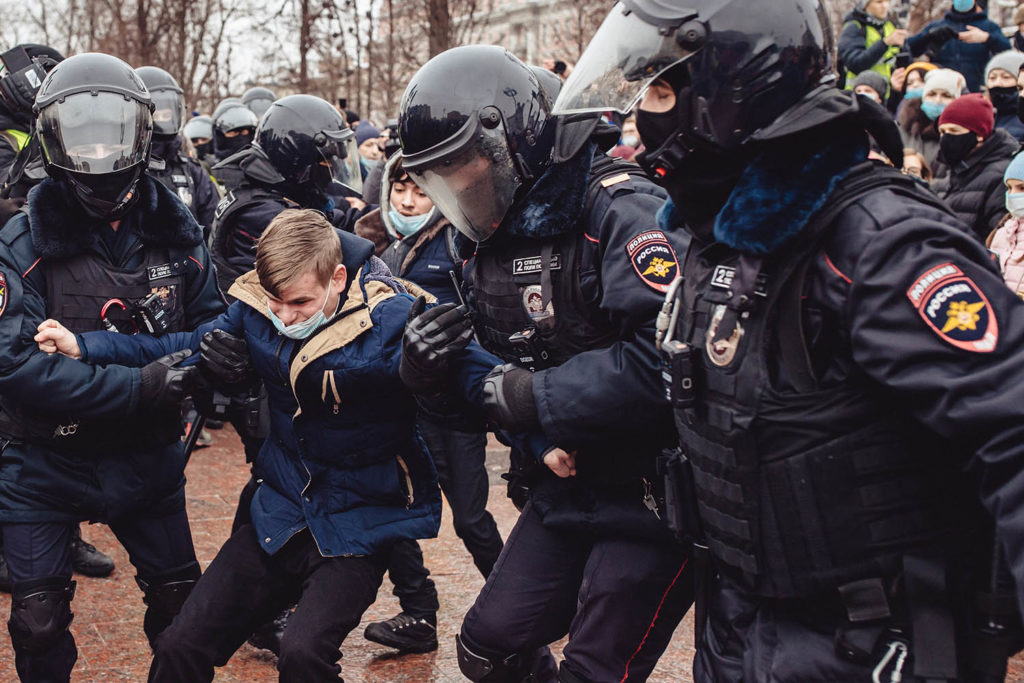What just happened

- The death toll from floods and damage caused by Tropical Storm Ana in southern Africa rose to 77.
- Western intelligence sources said Russia would be ready to invade Ukraine in two weeks.
- Police in London said they had asked for “minimal reference” to be made to Downing Street parties in the Sue Gray report on Downing Street parties, throwing into doubt the contents of the report and the timing of its publication.
- Rugby officials introduced a new rule to protect hookers’ necks, requiring them to keep one foot forward as scrums bind.
Britain was the first big economy to announce tax increases to help pay for the pandemic. Now it’s having second thoughts, and no wonder. Quite apart from the government’s desire to change the subject from partygate, the argument for fiscal probity right now is not compelling. The chosen instrument – higher National Insurance Contributions – will hit low-to-middle income earners hardest, and by global standards the UK is emerging from Covid more bruised than it likes to boast.
Those second thoughts. When asked about it yesterday, Boris Johnson failed explicitly to confirm the NIC increase, worth £12 billion to the Exchequer, would go ahead as planned in April. He’s said to be wobbling on it and a mini-parade of junior ministers and backbenchers has come out against:
- “You may have noticed that the top of the government is in listening mode.” (James Heappey, defence minister, Newsnight)
- “Given the cost of living pressures, I think now would be the time to put that headroom to good use.” (Mel Stride, chair of the Commons Treasury committee, to the FT on “wiggle room” created by lower-than-expected borrowing for postponing higher NICs)
- “We have to make a choice – do we tax millions of low income workers or do we tax big business?” (Robert Halfon, chair of the Commons education committee, Radio 4)
Publicly, 10 and 11 Downing Street are in lockstep on the need to stay the course, trim spending where possible and press ahead with the NICs increase to help clear NHS backlogs and pay for better social care. Behind those doors, there’s an ideological rift between the slimline Thatcherite in Number 11 and the spend-it-like-Beckham populist in Number 10.
Chancellor Rishi Sunak won last year’s argument about tending to the public finances, on the premise that the wider economy is strong. That premise is undermined by self-deception about the UK’s pandemic performance.

The bigger picture. A new survey of big economies’ policy responses to the pandemic ranks the UK 20th out of 20. Britain failed to control the spread of the virus despite “massive investments” equivalent to 19.3 per cent of GDP, the report says, then risked labour market disruptions by withdrawing support for firms and individuals before most other countries.
The survey for Adecco, a Zurich-based recruitment group, also
- ranked South Korea first for taming the pandemic, with minimal economic damage and impact on healthcare systems for an outlay of 6.4 per cent of GDP;
- ranked Singapore first for the recovery, with the strongest economic upsurge, 80 per cent of its population fully vaccinated and one of the world’s lowest per capita Covid fatality rates;
- concluded that prioritising public health and saving lives early in the pandemic was the best economic medicine for later on: the US recorded the world’s highest number of Covid cases and deaths between January 2020 and October 2021, and a 47 per cent rise in unemployment. South Korean unemployment rose by 0.05 per cent in the same period.
These are familiar comparisons, but the new data underlines the need for scepticism in response to the UK government’s preferred narrative of a world-leading vaccination drive and economic bounceback. The truth is the recovery is fragile, from a low base, following a full-blown public health catastrophe.
And there are alternatives to raising taxes on the middle class. In India, where billionaires doubled their worth over the pandemic while 46 million people sank into extreme poverty, pressure is mounting for a wealth tax on those earning over $266,000 a year.
On every continent except perhaps Antarctica, the case for taxing wealth only gets stronger.
Interest rate innocents
A federal appeals court in Manhattan overturned the convictions of two former Deutsche Bank traders charged with rigging Libor, an inter-bank lending rate that affects trillions of dollars worth of financial contracts. It was calculated as an aggregate of individual banks’ interest rates, which were submitted by traders. US prosecutors had convinced a jury that the two traders submitted false rates to their advantage, but yesterday’s three-judge panel ruled that “the government failed to show that any of the trader-influenced submissions were false, fraudulent, or misleading”. The ruling is a blow to fraud prosecutors everywhere who have struggled to bring successful prosecutions in response to the financial crisis. In England, out of the 13 people charged with rigging Libor, only four were convicted.

Fleeing Russia
Where is Russia’s opposition? Where are the crowds telling Putin not to go to war? The short answer is: in exile. Those who might have taken to the streets in numbers in a less oppressive era have been intimidated into silence. Those who might have led them have fled or sit in jail. Alexei Navalny, serving a two-and-a-half year sentence on bogus fraud charges, was named a terrorist this week by the Kremlin. An arrest warrant was issued for his brother; his two closest aides in his anti-corruption work have long since operated from the Baltics; and yesterday Reuters reported that another prominent supporter, Violetta Grudina, 32, had been forced to escape from Murmansk via St Petersburg for the sake of her 11 year-old son. Staying at home would have meant going to jail.

Bongino ban
On Wednesday misinformation scored a victory with Spotify’s choice to keep the podcast host Joe Rogan on its platform and sever ties with Neil Young, the singer and voice of reason. Yesterday YouTube levelled the score at 1-1 for the week by permanently banning Dan Bongino, a Fox News host and former Secret Service agent who likes to say masks were useless in preventing the spread of Covid. He also liked to say he’d “been in the room” for important conversations while on protection details for presidents Bush Jr and Obama. Bongino’s YouTube channel had 882,000 subscribers but is now defunct. He’s still on Fox, though, on Saturdays at 10pm.

Vax IP – publish and be damned
There are 7.9 billion people in the world. More than 10 billion Covid vaccines have been administered, but 3 billion people still haven’t had one. So more than 300 scientists have written to Boris Johnson urging him to back efforts to waive intellectual property rights on the vaccines to enable more doses to be made and delivered to low-income countries. This is not the first time vaccine makers have been asked to publish their homework, but they have not obliged yet, and the alternative approach to vaccinating the world – donations by rich countries after they’ve prioritised multiple doses for their own populations – isn’t working either. Unvaccinated populations are petri dishes for new variants. No one’s safe till everyone’s safe. How hard is that to grasp?











